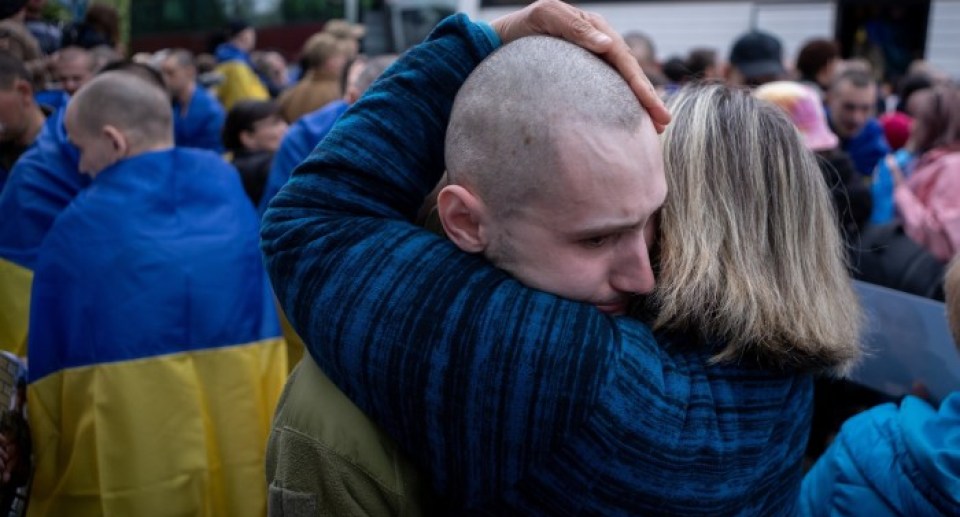Ukraine and Russia begin biggest prisoner swap of the war

[ad_1]
Unlock the White House Watch newsletter for free
Your guide to what Trump’s second term means for Washington, business and the world
Ukraine and Russia began their largest exchange of prisoners of war on Friday that had been agreed during their first peace talks in three years, according to Ukrainian officials.
Russian and Ukrainian negotiators last week agreed to exchange 2,000 prisoners during their meeting in Istanbul, which ended without any substantial progress on a lasting ceasefire due to Moscow’s maximalist demands.
US President Donald Trump earlier on Friday posted a message on Truth Social, congratulating “both sides on this negotiation” and saying that the “swap was just completed”, although Kyiv officials said that was not the case.
“This could lead to something big???” he added.
Ukrainian officials told the Financial Times the exchange started on Friday and was expected to be the biggest between the warring sides since 2014.
The officials said the prisoners — 1,000 on each side — would be exchanged in three groups over three days and include mostly military personnel but also some civilians. A Ukrainian official familiar with the details of the exchange said Russia did not want to release any of its high-profile prisoners.
The Russian defence ministry said 270 Russian military personnel and 120 civilians, including from its western Kursk region bordering Ukraine which was temporarily occupied by Kyiv’s forces, had been returned on Friday, Tass reported.
A Ukrainian official said Kyiv also received 390 prisoners in return.
Since the start of Russia’s full-scale invasion in 2022, Kyiv and Moscow have conducted more than 60 prisoner exchanges involving about 5,000 Ukrainians. The Russian side does not disclose information about the prisoners it receives from Kyiv. The exchanges are one of the few matters on which Russian and Ukrainian officials have found any common ground.
Ukrainian officials remain sceptical about the broader significance of this exchange. President Volodymyr Zelenskyy has agreed to Trump’s proposal in March of a 30-day unconditional ceasefire, but Russia’s Vladimir Putin has insisted that there first must be agreement on his maximalist terms and what he says are the “root causes” of the war.
Those demands include official recognition of Russia’s ownership of the Crimean peninsula and four regions of Ukraine that his army does not fully control, as well as the demilitarisation of Ukraine and a commitment to never join Nato — a goal enshrined in the Ukrainian constitution.
Kyiv has strongly refused and said that those would essentially mean the end of its existence as a sovereign state.
On Friday, Russian foreign minister Sergei Lavrov said Moscow was “in the advanced stages” of preparing a memorandum on the peace talks which would be discussed with Ukraine at a follow-up meeting after Istanbul.
Trump had signalled that Putin wanted to negotiate such a memorandum in direct talks with Kyiv after the two leaders talked on the phone on Monday. But Ukrainian and European officials were sceptical about the scope and rationale of that planned document.
Speaking at a conference devoted to “historic southern Russian lands”, including four Ukrainian regions Putin laid a claim to in 2022, Lavrov implied that Russia did not intend to make any concessions in the memorandum. “We are essentially putting it together based on fundamental things — that these root causes are the basis of this conflict and must be cut out like a cancerous tumour,” Lavrov said, according to Interfax.
Any peace deal would require Ukraine to roll back the pro-western stance it has embarked on over the past decade, with Moscow insisting on laws restoring the use of the Russian language. “If they are counting on agreeing a ceasefire and what’s left of Ukraine living under all those laws they passed, that’s an illusion and can’t be allowed under any circumstances,” he said.
Russia does not consider Zelenskyy as the country’s legitimate president after his five-year term expired last year, Lavrov said, implying Moscow would insist Kyiv hold elections before signing any peace deal.
Ukraine has postponed its presidential election under martial law and pledged to hold one following a ceasefire.
After Trump’s call with Putin, in which the US president suggested he could walk away from peace negotiations, Ukraine feels as though it has been abandoned by its biggest backer.
Though Trump had said the Vatican could step in to broker a ceasefire, Lavrov said this was “not very realistic” because the Roman Catholic Church was an inappropriate venue to discuss peace between “Orthodox Christian countries”.
[ad_2]
Source link









